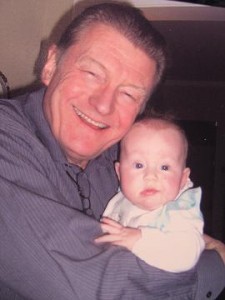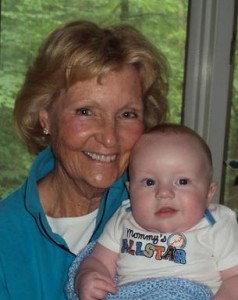While I was in England recently visiting our son Hans and his young family, we began chatting about the Garden of Eden. We wondered aloud about its only residents, Eve and Adam, the mother and father of the entire human race. What did they look like? Were they tall? Small? Dark skinned? Light? Were they children? Teens? Twenty-somethings?
Enjoying our discussion, we talked about their language. Without ever pondering this before, I’ve always assumed they spoke English, a thought that seems comical now. But what, then, did they speak? Was it Hebrew? Greek? Aramaic? We decided it was probably none of those.
Most likely it was a language unknown today. Hans got me laughing when he said, “Maybe it was the language of clicks and whistles,” and then gave me his best impression. We agreed it was too late for either of us to master that one.
Nate spoke fluent Russian, having been a Russian minor in college. Although he downplayed his accomplishment, when he visited Russia, he successfully spoke it, was easily understood and was able to understand native speakers in return. He was fluent all right. And one of the reasons was his continual review of his flashcards, worn and dog-eared from ongoing use.
All of our children have studied foreign languages in school, but most can’t use it beyond Taco Bell or The Olive Garden. Although a two year old can become fluent in any language in less than a year, the rest of us need multiples of that time to speak even a little. The older we get, the harder it is to make a new language “stick”.
It’s even difficult (and can be risky) traveling in a foreign country where we can’t read signs or understand speech. Mary and I once got so lost in Sweden we thought we’d have to spend the night under a bridge. Although we had a car, a full gas tank, Swedish money and two fairly good brains, without the language it was a hopeless situation.
I’ve so loved listening to 22 month old Skylar learn English. Yesterday we walked the four short blocks to my mailbox with Skylar running circles around the rest of us, Linnea, Micah, Louisa, Birgitta, Jack the dog and me. One of us said, “It’s a little chilly.”
Skylar, a keen listener, immediately picked up on it. “It’s a little chilly, Mommy. It’s a little chilly, Weez. It’s a little chilly, Gitta. It’s a little chilly, Midgee.” As she skipped along, she repeated these new words 20 times over until we were stumbling along the road with laughter. But Skylar was simply learning a language.
No doubt heaven will have its own language made up of words none of us could ever find in an earthly textbook. When we first arrive there, however, and are still learning to speak it, there will be a way to commune with the Lord and each other as we’re bursting to share our joy at being in the presence of God. We’ll be able to use the universal language: music.
“Make a joyful noise unto the Lord, all ye lands. Serve the Lord with gladness.” (Psalm 100:1-2a)






